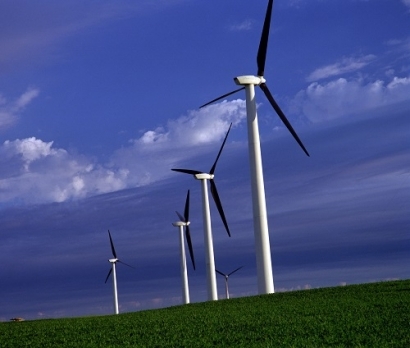
Norway is one of multiple European countries that previously developed an extensive and impressive hydropower network; however, local officials and citizens have raised concerns in hopes of slowing down further development projects. In the new framework plan, regulations include permits (of a shorter expiration) before the start of construction, turbine height and noise, and local acceptance of each project.
Despite these actions set for by Norway’s government, local citizens have displayed many acts of aggression throughout their protesting efforts. Tina Bru, the Petroleum and Energy Minister of Norway, has witnessed these moments firsthand. Bru has been physically blocked from attending an event and continued to receive verbal insults.
Bru is a native of the Stavanger area, the core of oil industry in Norway. Bru had been anticipating the announcement of two new sites opening for wind projects off the west coast of Haugesund. She was expecting a more positive response from the public considering wind is a much more sustainable alternative to oil and gas.
Unfortunately this was not the case. The wind power plan announcement attracted protestors complaining that the potential turbines detailed would fill the spacious landscape and harm local wildlife. Aggravated demonstrators previously blocked the pathways to where the potential wind turbines would be erected, while shouting and threatening to “destroy the island.” Local police even needed to remove a car blocking the roadway to the site.
The Socialist Left Party in Norway has openly supported demonstrations and protests against wind turbines like this one for years. One of the main objectives of the Socialist Left Party is to provide local municipalities with total control over wind power projects to ensure that the areas and wildlife remain unharmed.
Bru on the other hand has stood by Norwegian businesses specializing in wind turbine production to support the offshore wind industry overall. Finding more sustainable alternatives to oil and gas appeared to be her main objective in these efforts.
Germany is similarly facing a decline in their onshore wind market. Enercon, the top German competitor in turbine manufacturing, had a triple-digit million euro loss in 2019 and is expecting another deficit by the end of this year.
The OEM in Germany announced a restructuring effort that will consist of focusing manufacturing projects on core sites while integrating partners that were previously external, and discontinue any projects that require outsourced production.
However, with hydropower meeting many sourcing needs, and almost all power needs in Norway, locals in these European nations have made it clear that the continuation of wind turbine (most specifically onshore) construction is either unwanted or unnecessary.
Overall, it appears that public outcries are the main instances creating dysfunction between local authorities, government officials, and business within the wind sector that are trying their best to continue operations in a normal and peaceful fashion. It is clear that finding a resolution to public protest would be in the best interest of government officials in these European nations.
If local citizens continue to display aggressive behavior towards officials and businesses involved in renewable energy like wind power, the local government will continue to face difficult threatening situations. Retrospectively, if the government does nothing to reply to the concerns raised by the community, outrage among citizens will only grow.
A robust public affairs campaign could be a starting point for government officials to build public support of wind among constituents consisting if Bru and other energy ministers and officials concur.
Al Maiorino started Public Strategy Group, Inc. in 1995. His firm has developed and managed multiple corporate public affairs campaigns in a variety of industries such as gaming, cable television, retail development, auto racing, energy and residential projects. Additionally, his firm has worked on projects in twenty-six states and three countries.

